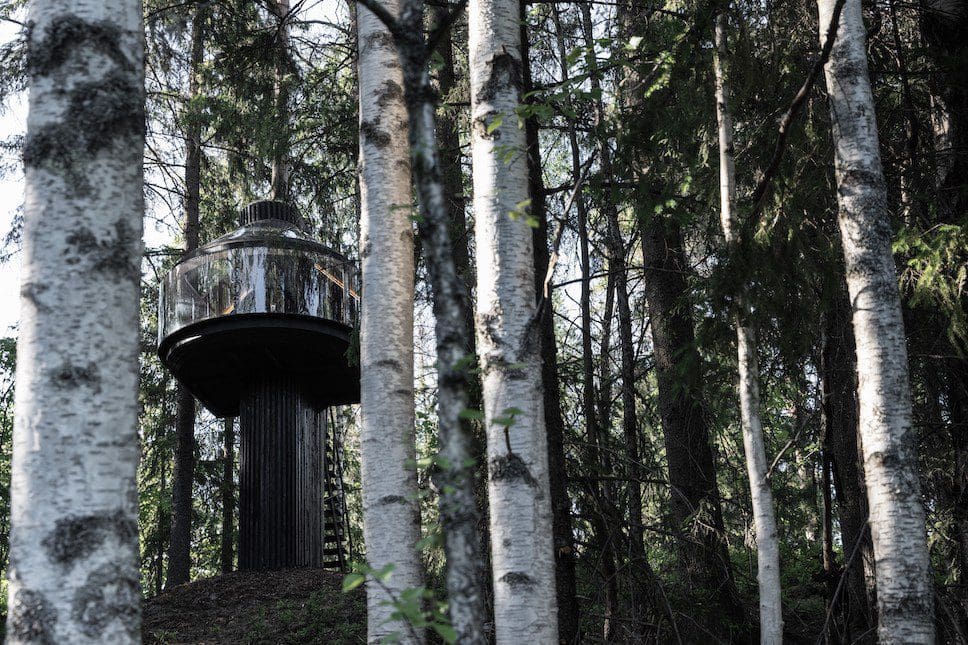
Deep in the Finnish forest, electric performance car brand Polestar has built a full-scale version of the Koja Treehouse, redefining sustainable travel.
The micro-space treehouse was originally envisioned by Finnish designer Kristian Talvitie, and is the first Polestar Design Contest submission to be realised in full scale. It has been built in the village of Fiskars, an art and design hub in southwestern Finland, where it blends in with its natural environment having been constructed from locally sourced wood and wool.
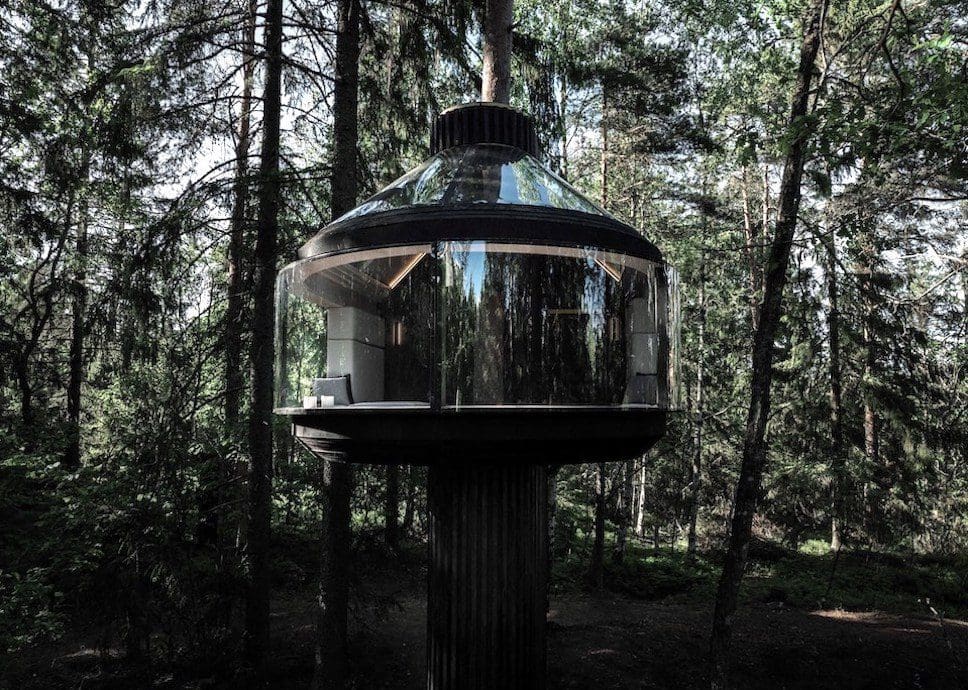
Designing the Koja Treehouse
Concept designer Kristian Talvitie sought to reimagine sustainable travel in a way that actually reduces the need for travel in the first place. It’s name ‘Koja’ translates from Swedish to mean ‘hut’ or ‘den’, and signifies its purpose of immersive visitors in nature whilst providing them with a safe and comfortable place to reside. According to Polestar, Koja connects to the growing micro-space trend and it’s designed to be accessible to explorers who would otherwise travel further to experience the wilderness.
“Most designers look at the design from a user perspective. I also look at things from the environment’s perspective,” explained Kristian Talvitie. This frame of mind is reflected in the design of the Polestar-built treetop micro-dwelling which envelops a tree trunk, taking the support from the tree without impacting on it. Its panoramic glazed façade wraps around the minimalistic interiors, letting the undeniably beautiful views of nature speak for themselves.
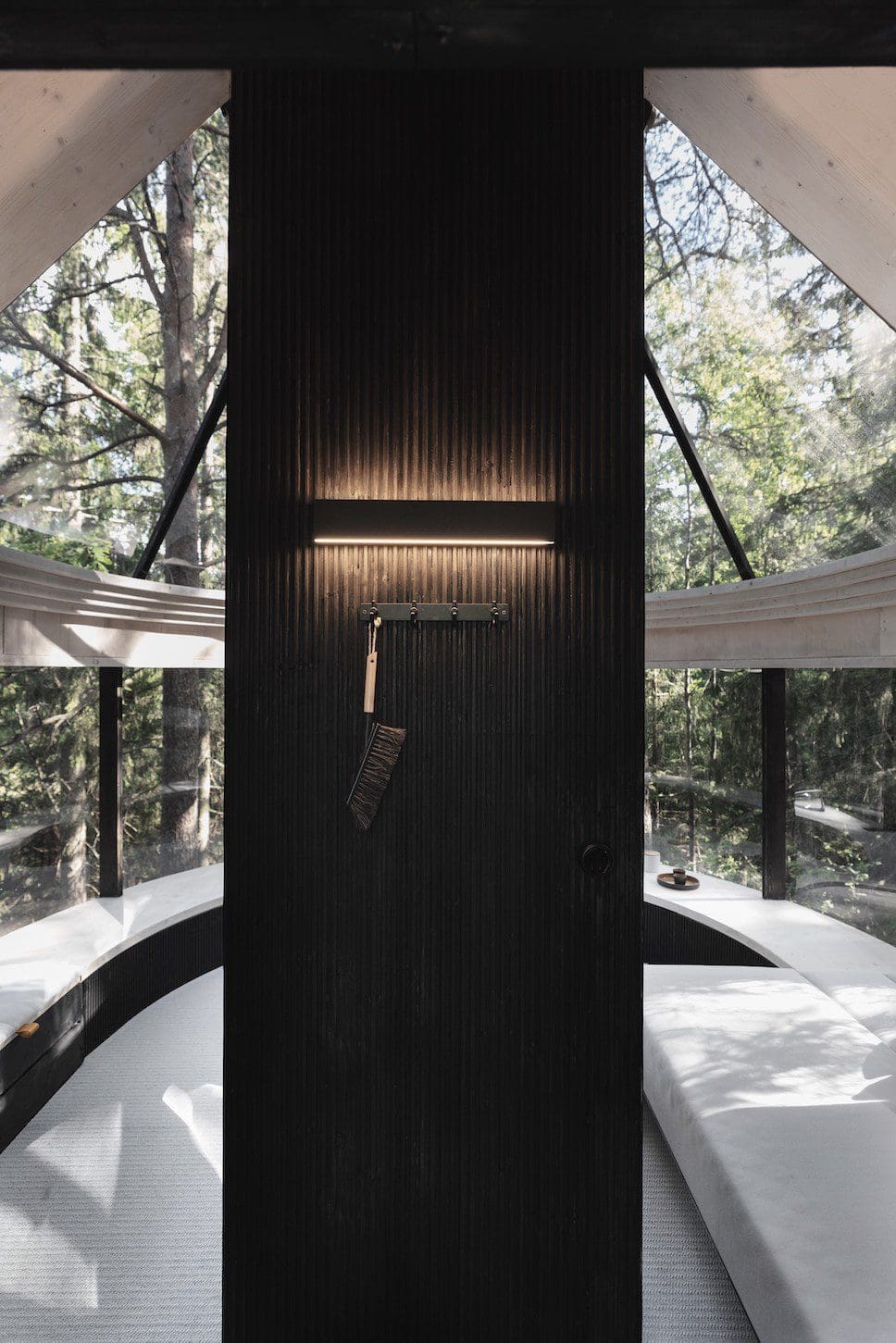
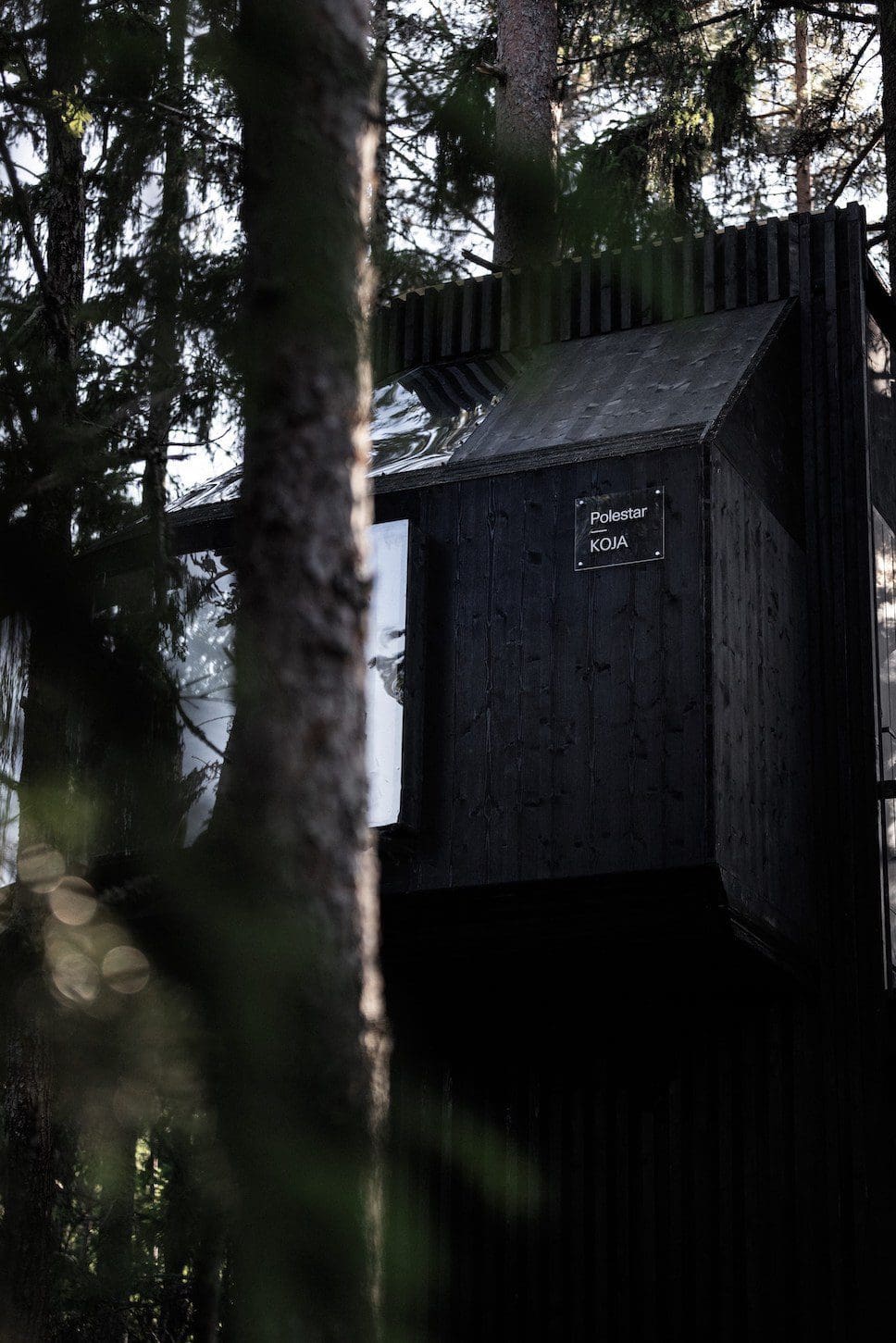
Design details
Koja encapsulates the design language and sustainability values that are so important to the Polestar ethos, minimising the use of material and energy whilst maximising the experience.
Finished in Nordic fir and spruce CLT with an iron frame, the slender structure has been likened to a spaceship in the forest by the Polestar team. It is mounted to a tree at the height of 6 metres above the forest floor, and its tree trunk-like base draws the eye upwards towards the disc-shaped, glazed ‘den’ which is accessed by a staircase. Enclosed within, there’s a modest sized, u-shaped room which is a snug for designed for two people. This space can be used as a lounge and a sleeping area, with a standalone bathroom installed nearby in the woods.
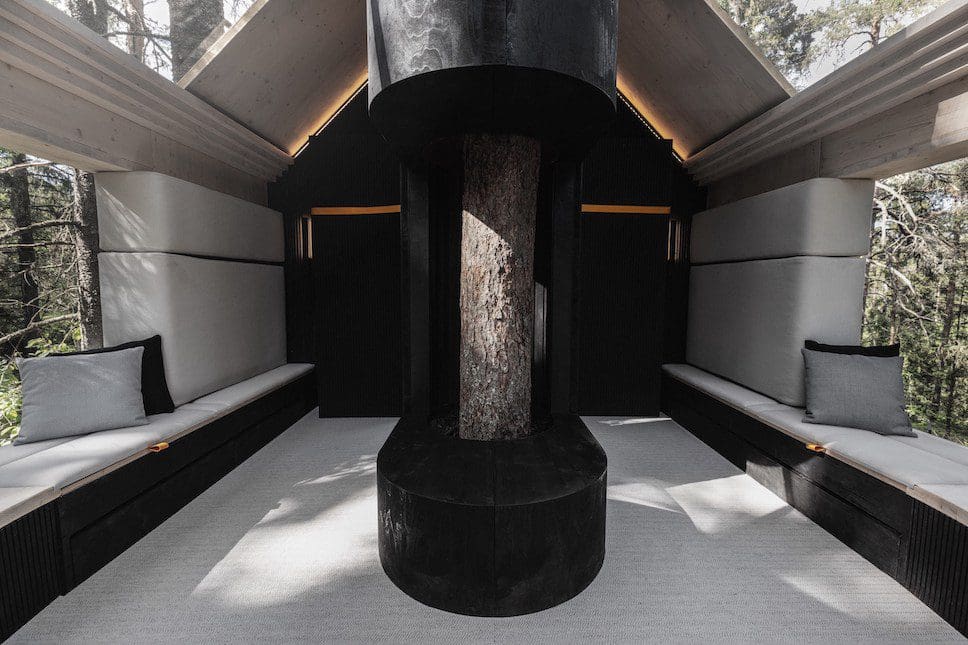
On location in Fiskars village in Finland
Kristian Talvitie worked closed with the Polestar design team to translate the treehouse design into reality. Koja was a response to the 2021 Polestar Design Contest theme of ‘progress’, rethinking travel and its impact on our environment. “It’s amazing how well it embodies our brand values,” said Martin Österberg, head of marketing for Polestar Finland. “It’s beautiful in its simplicity, and the fact that it’s made from locally sourced spruce really emphasises our focus on sustainability.”
Situated in the Finnish forest, Koja treehouse is part of the ‘House by an Architect’ exhibition during the Fiskars Village Art & Design Biennale, open until September 2022. Architecture plays a leading role here, where the event is showcasing sustainably built structures that are both compact and adaptable.
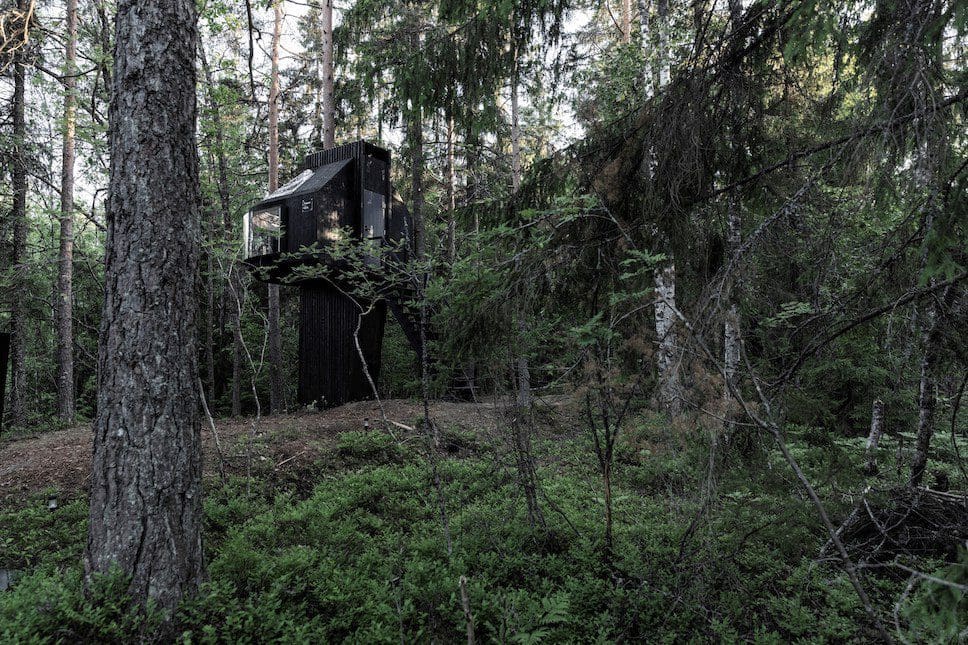
Photographs courtesy of Polestar.
Learn more about Polestar and its sustainability mission, and take a look at what else there is to see at Fiskars Village Art & Design Biennale.
Discover more treehouse designs on enki, including the Treehouses at Kew 2023 competition winners and the Wild Escapes treetop experience in Hampshire.
